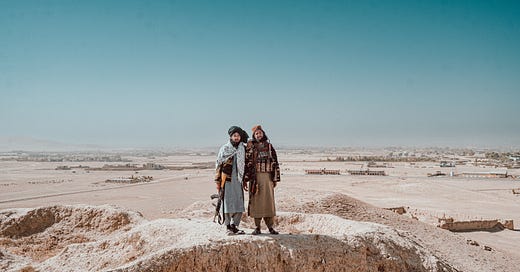War photographer Jake Simkin on capturing hope, humanity and injustice
Why Simkin swapped a career in cinematography for a life on the frontline.
On a beach in Banda Aceh, in the wake of the Boxing Day tsunami, Jake Simkin resolved to pack up and go home. A cinematographer and visual artist, Jake had cancelled his work commitments to travel to Indonesia with an NGO to photograph the devastation triggered by Asia’s largest recorded earthquake and the tsunami that followed.
‘It was fucked up,’ Jake says. ‘I remember seeing how many dead [people] they were pulling out of the houses that had been crushed. I was trying to take photographs but I couldn’t keep going. There were people strewn everywhere. After a while, I was like, what the fuck am I doing? I put my camera down and started carrying dead bodies. We put them in trucks and buried them in mass graves. Afterwards, I was at the beach crying and thought I’d just go home. I’d had my fill.’

While Jake sat at the beach, his camera by his side, some kids nearby were making sandcastles. They called him over because they wanted him to take their photo. And though Jake no longer has a copy of the photo, which was shot on film, this was the moment that changed everything for him. The kids, who were playing with five kilometres of tsunami damage behind them, helped Jake realise that hope can be found – captured – in such places. He became addicted, he says, to finding humanity in dark places.
Jake came home a different person. Prior to Banda Aceh, he’d been working as a cinematographer, creating music videos and visual effects for bands like Jet and Architecture in Helsinki. But once Jake was back in Melbourne, he felt like the people around him weren’t really engaging with what was happening in the world. Or interested at all.
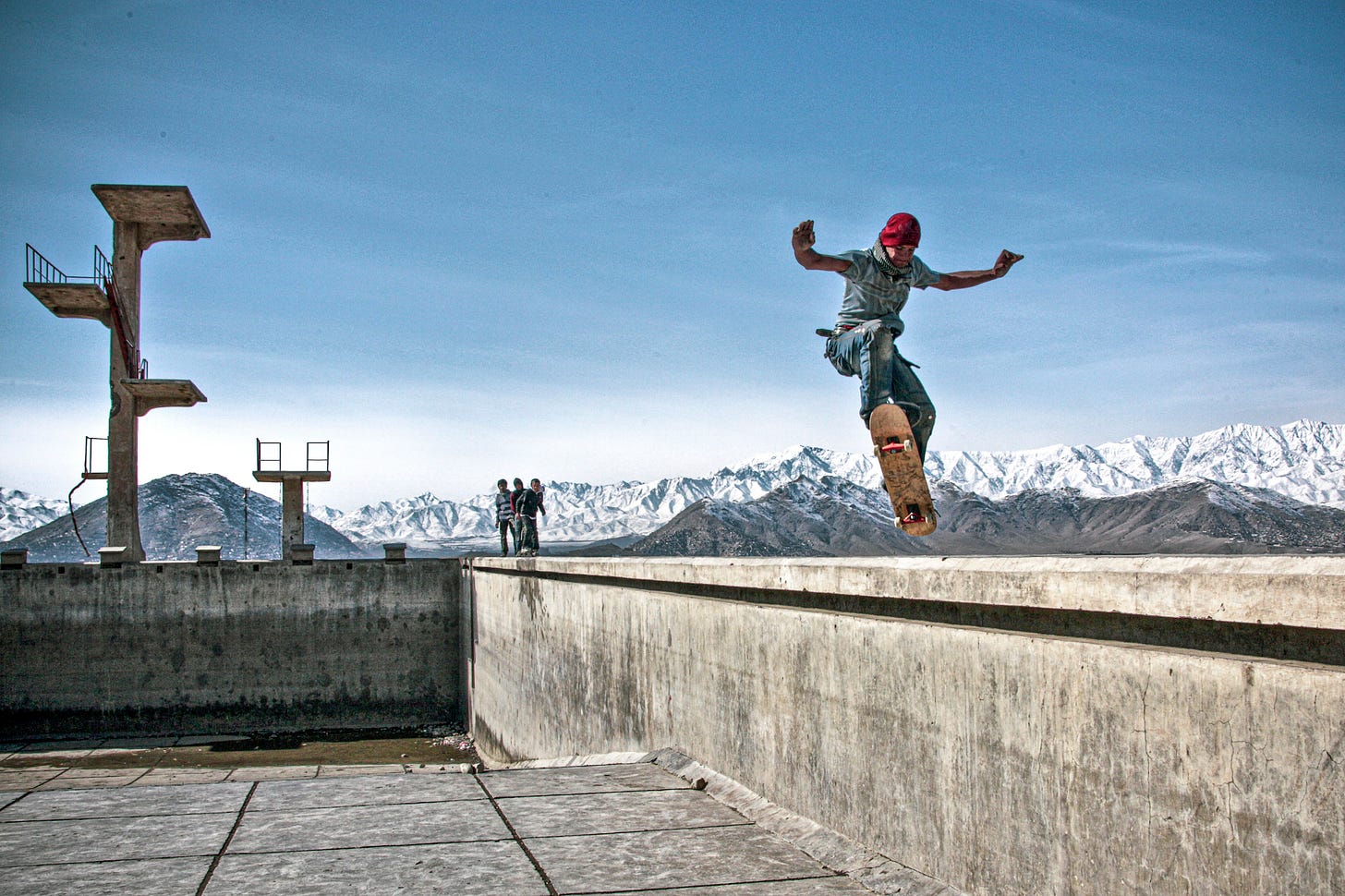
‘I wanted to learn what it meant to be a human being,’ says Jake, reflecting on his state of mind after Indonesia. ‘I needed to get away from what I’d call a mediocre life, I guess. Some people don’t have passports. Some aren’t interested in seeing the world. And that’s okay, you have to respect that at the end of the day. But my world was large, it was huge. I had to go on a journey. To have stories. I had to be like Freddo.’
Freddo was a grip – someone employed to control camera movement and lighting – who regularly entertained Jake on set with stories of travelling the world. ‘He’d talk about his favourite jail being in Greece because, you know, he was served a souvlaki at the end of the day and the food was great. He worked as a ship navigator and smoked so much weed that he sent the ship in the wrong direction for kilometres, wasting millions of dollars of fuel. I’d listen to these stories and realised I needed to live my life. I wanted my own story.’
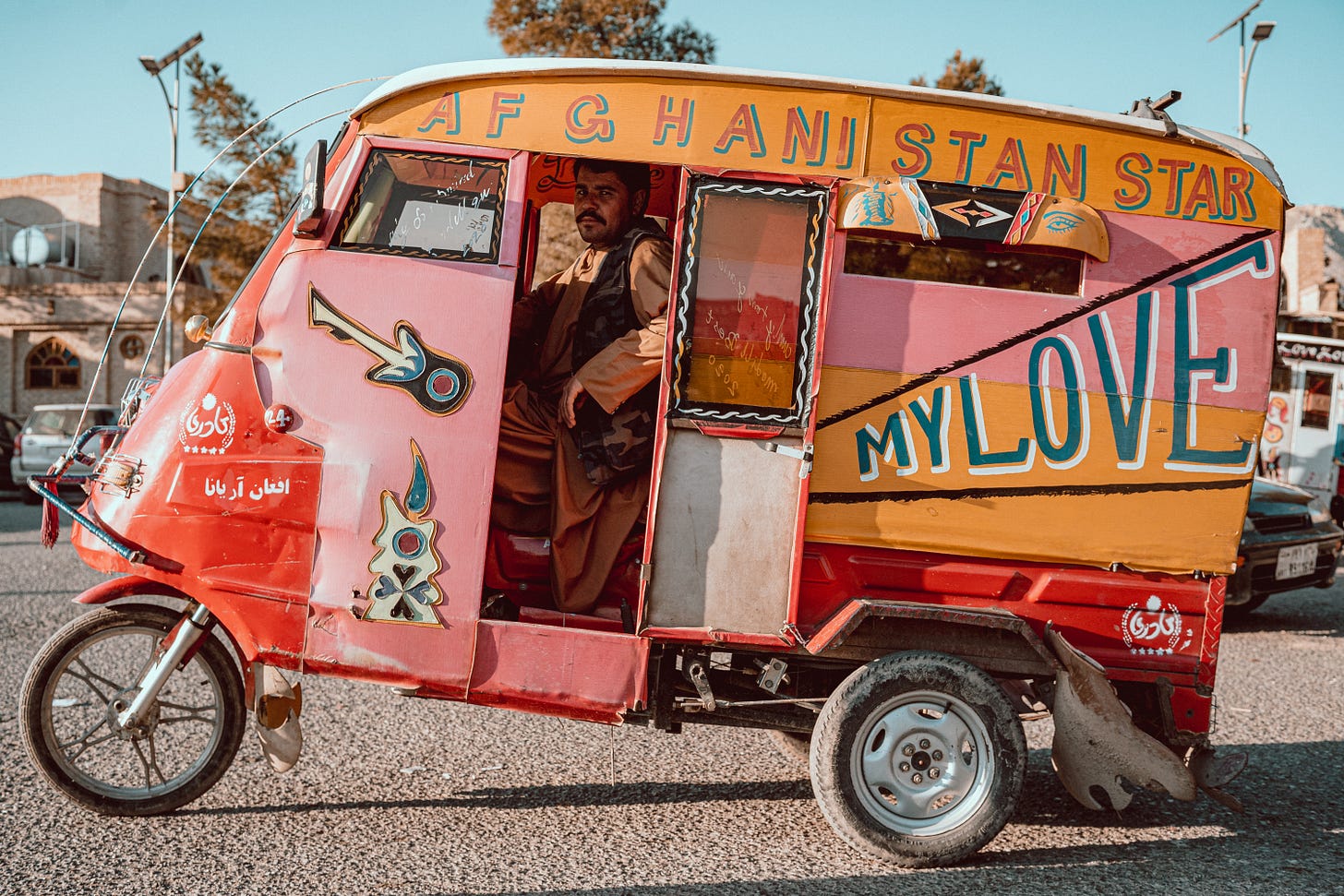
Jake’s opportunity came through a friend who was producing a film on women’s rights around the world. He travelled to India to document the stories of child brides and acid-burn victims and decided he wasn’t going home. He didn’t want to sit in a pub and have the same thing happen again, to talk to his friends about what was happening and have nobody give a shit. His mind made up, he sold his return ticket, bought a motorcycle and rode around India. Pakistan was next, but eventually, for family reasons, Jake did come home; it didn’t take long, however, for him to score a job with The Extreme Tourist, an American-funded documentary produced by Afghanistan’s leading television station. He flew to Afghanistan to work on the show and fell in love with the country.
‘A six-month trip became six years,’ says Jake. ‘But it was an on-off relationship with Afghanistan. There are certain things you can’t change in society. Such unfairness. It felt like an abusive relationship. Great for a few months, but then the abuse came back. It wore me down. I’d cover another conflict for a while, but always went back to Afghanistan.’
Those other conflicts included South Sudan and Libya. And it was in Somalia, while taking photographs aboard an ambulance, that Jake had his closest brush with death. ‘These kids from Al-Shabaab had set up a checkpoint and they shot at the ambulance with no provocation,’ he says. ‘They killed the driver, killed the medic, and I went flying into the front window then bounced into the back. I was covered in blood when they opened the door and I pretended I was dead. They were laughing away and took all my camera gear. Once they left, I had to drag the driver out of the front and drive, but I didn’t know where the fuck I was going. Like, do I drive further into Al-Shabaab territory? It’s the most scared I’ve been in my whole life.’
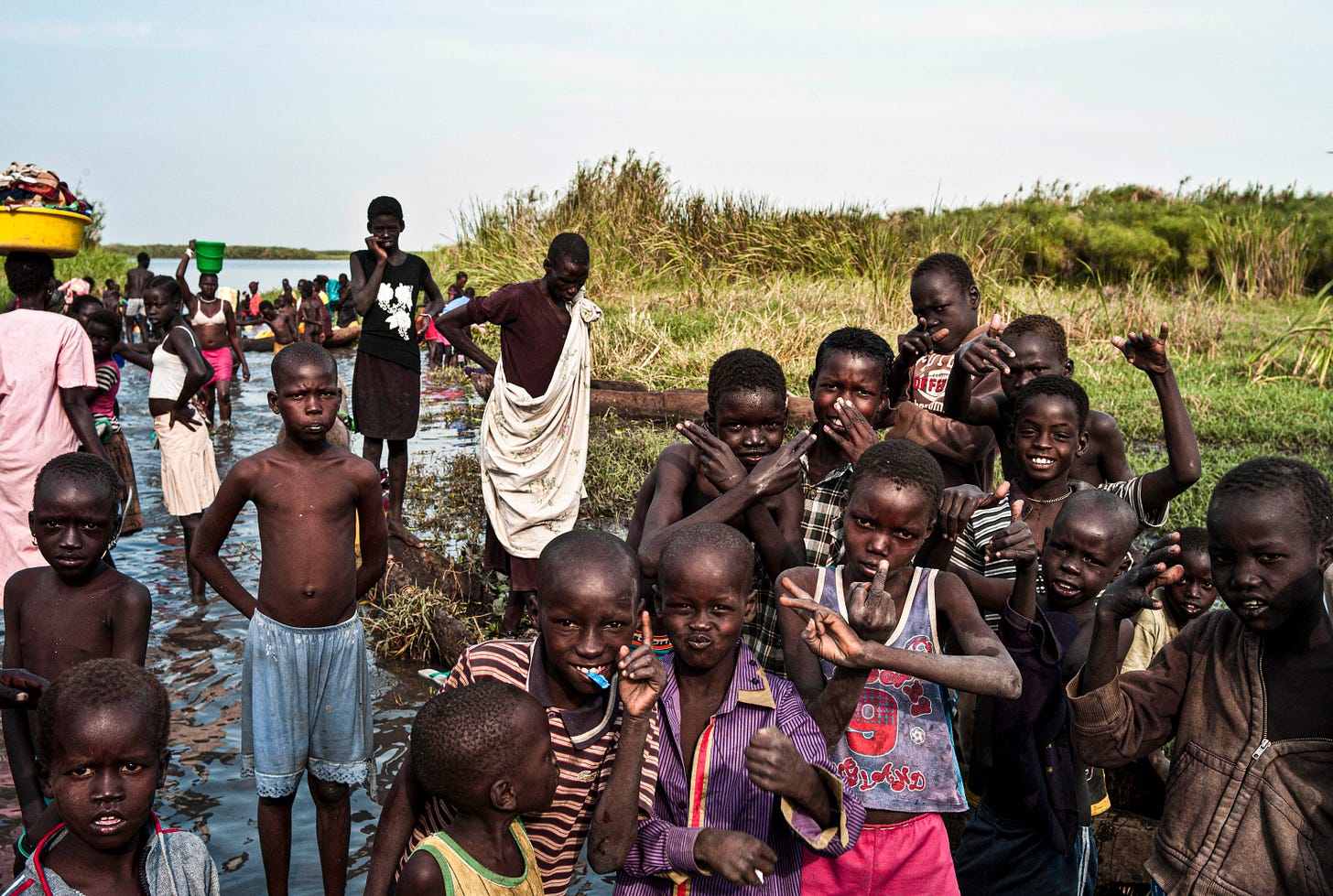
A lot of the photographers and journalists that Jake had met in Africa and Afghanistan eventually ended up in Istanbul to cover the conflict in Syria. Jake was intrigued, so he rented a place in the city and began travelling back and forth across the Syrian border. At one point, this required sitting in a gigantic cooking pot and pulling himself, using a fixed rope, to the other side of the Euphrates River. Another time, while attempting to re-enter Turkey, Jake was shot at by the Turkish border guards.
‘A Syrian family had given me their one-year-old baby,’ he says, recounting the crossing. ‘I had him in my arms and the Turks started shooting at us. We end up sitting in the dirt and they’re still shooting at us, laughing away. I just had to accept what it’s like to be a Syrian refugee trying to get across with a child. Those guys were so cruel.’
It was there, in Syria, that Jake learned what it meant to live day by day. He spent time working with the White Helmets, who acted as first responders when the bombs were dropped, and grew to love them. They’d eat together. Sleep together in the same room. And one by one they were all killed.
‘While you’re in this sort of conflict, under siege, it’s hard in the sense of seeing people you love die,’ says Jake. ‘I have a photo of a kid selling watermelons. He was laughing at me taking photos and I was getting him to muck around, to make the big sell. The next day he was killed by a barrel bomb. Blown to pieces. Like, this kid doesn’t exist anymore. The people you get to know, they pass away.’
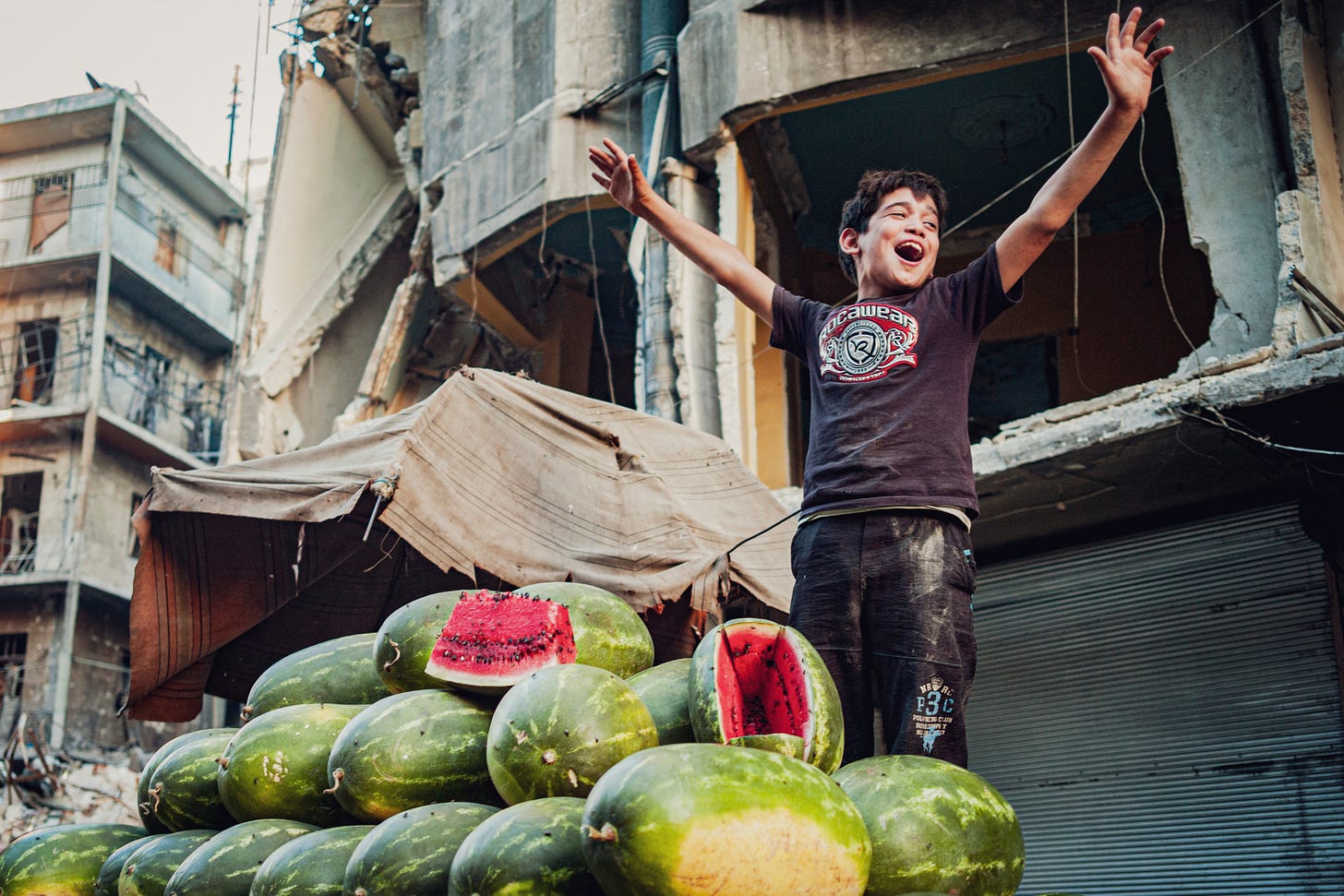
It’s worth taking a moment to wonder what Jake was risking his life for. This is a man who has no historical ties to Africa or the Middle East, a man who was born to an Australian father and Malaysian mother at an Australian air base in Penang. He says his brown skin, beard and height have helped him pass as Turkish, Syrian and Afghani, but it’s his moral values, rather than his ability to blend in, that have kept him returning to these war zones.
‘I don’t want to see genocide or nuclear fallout,’ he says. ‘I have to make my moral vocalisation of what I want in the world. And what I want is peace. I want there to be security. You have to say no to indiscriminate killing of innocent people. That’s the bare minimum. It doesn’t matter what country they’re from.’
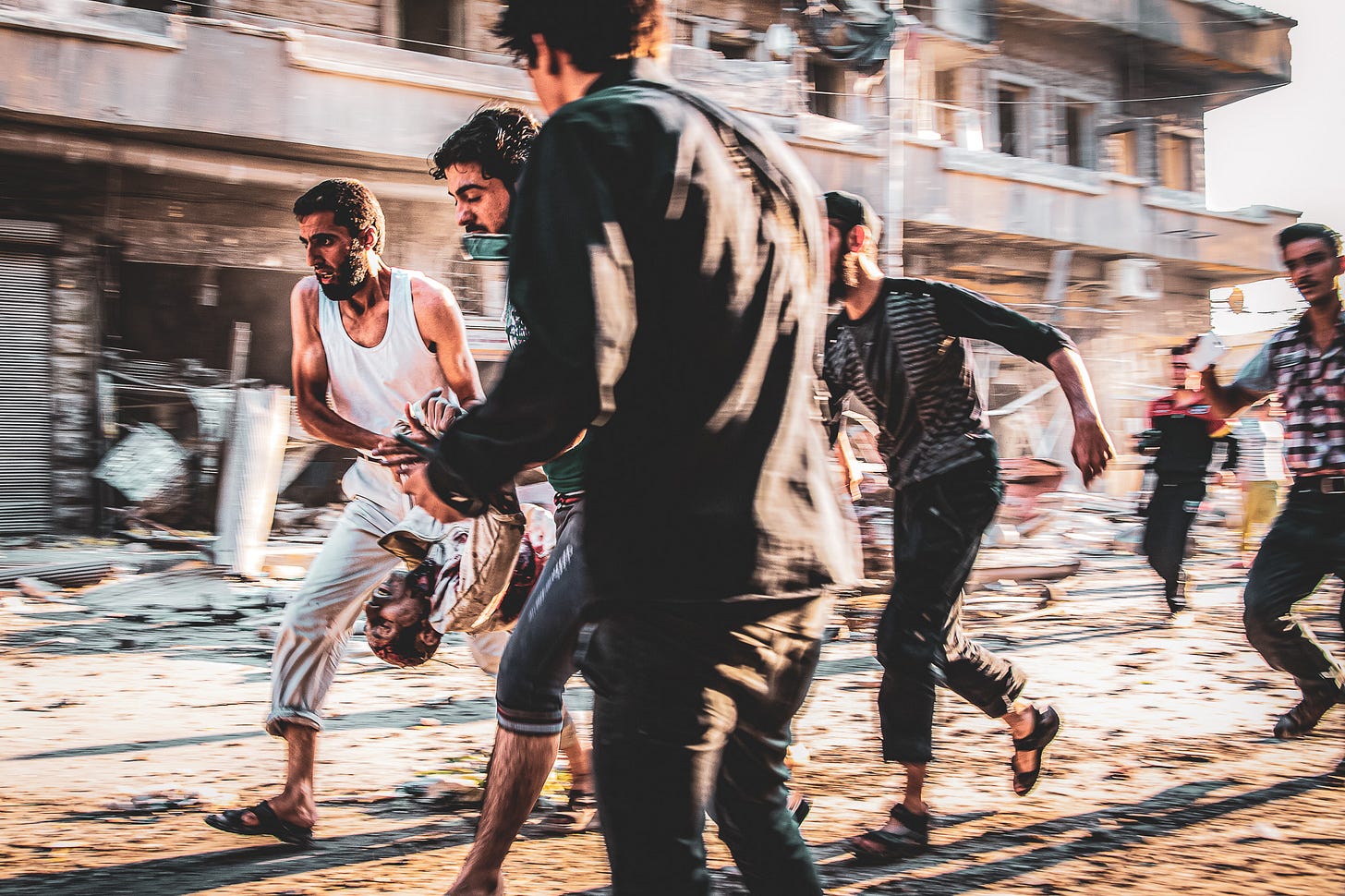
While working in Syria, Jake wanted to make sure people cared about what was happening as much as he did. He hoped to do so with his camera, but when he couldn’t, he’d join the White Helmets in their truck and help pick up dead bodies. Or assist with triaging injured civilians and transporting them to hospital. Becoming involved in this way, he says, was what eventually saved him from being kidnapped by Al-Nusra Front, a jihadist organisation fighting Bashar al-Assad’s government forces.
‘Al-Nusra Front turned up to where I was staying,’ says Jake. ‘Twenty guys fully armed. They asked to come in and I thought, I’m fucked. They walked in and said they’d been following me for a while. They were going to arrest me because I was a journalist and they didn’t want their story being told. But they said they saw the air strikes, and saw me take a couple of photos before helping people out of the rubble. They thought it was odd that I was helping people. Then they saw me volunteering for the White Helmets without my camera. They wanted to say “Welcome to Syria”. They said, “If you need help, call us”. And then they gave me a telephone number.’
When other journalists contacted Jake about travelling to Syria, he was quick to tell them not to come. They’ll kidnap you, he’d warn. He says a number of Spanish journalists ignored his advice and it took four days for Al-Nusra Front to pick them up. It cost five million dollars each, he thinks, for their release.
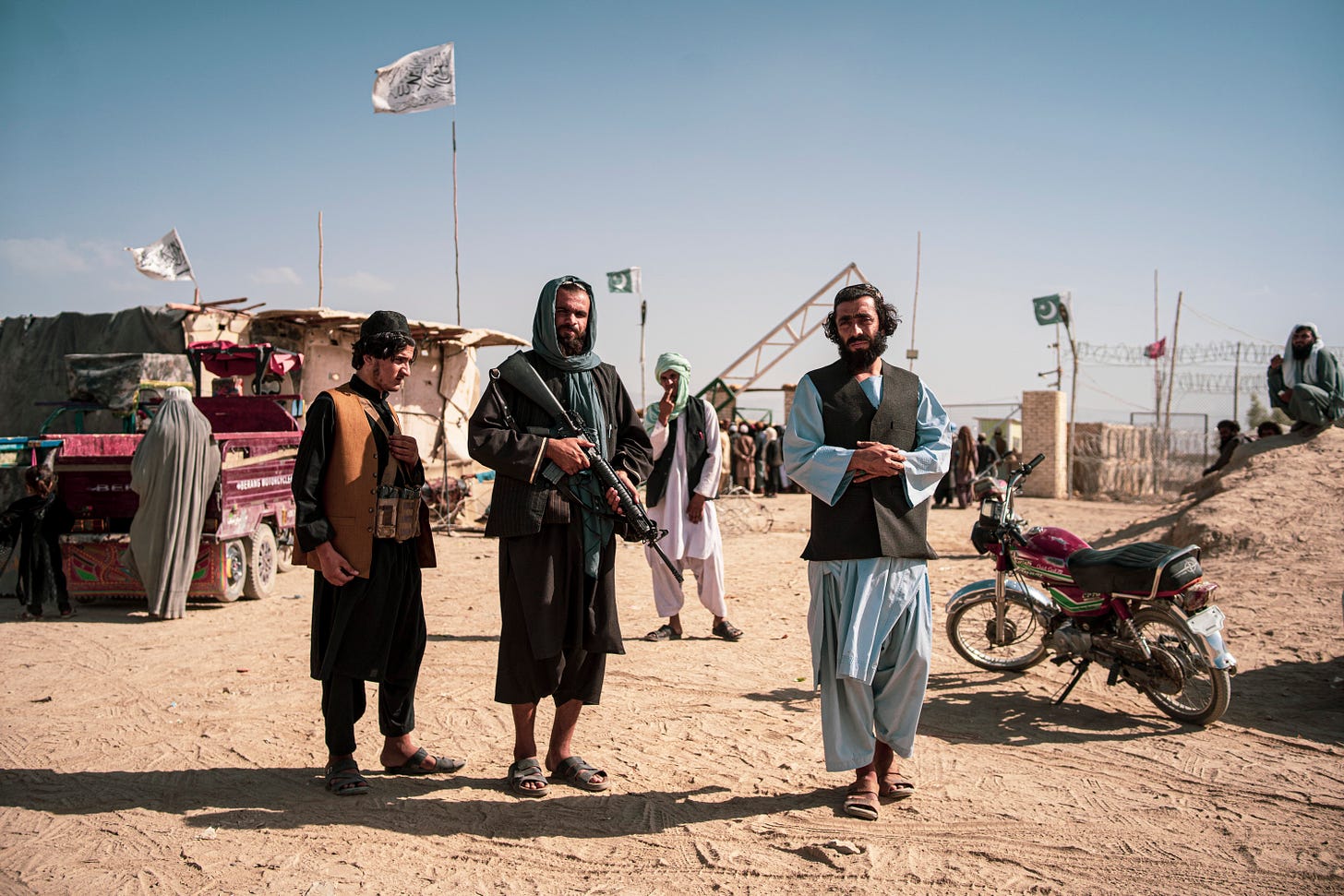
That was Syria, but when it came to Afghanistan, Jake had no such problems giving advice on how to enter. This is actually how he met his wife, a Russian journalist with whom he has a daughter. She contacted Jake after he’d returned to Afghanistan in 2021 to link up with Hollie McKay, an Australian journalist, for a photo book. Unfortunately, the Taliban took back control of the country just six days after he landed.
Jake and Hollie were in Mazar-i-Sharif, Afghanistan’s fourth-largest city, when the Taliban won. They’d been invited to travel with Abdul Dostum, an Uzbek warlord and Afghanistan’s former vice president, as he attempted to take his hometown back from the Taliban. Jake describes Dostum as a controversial figure, which is perhaps putting it mildly given the war crimes Dostum has been accused of over the past two decades. But for Jake and Hollie it was a great opportunity to travel to the frontline. They packed lightly, Jake says. Bulletproof vests plus a set of Western and local clothes. They were ready to go but nobody came to pick them up.
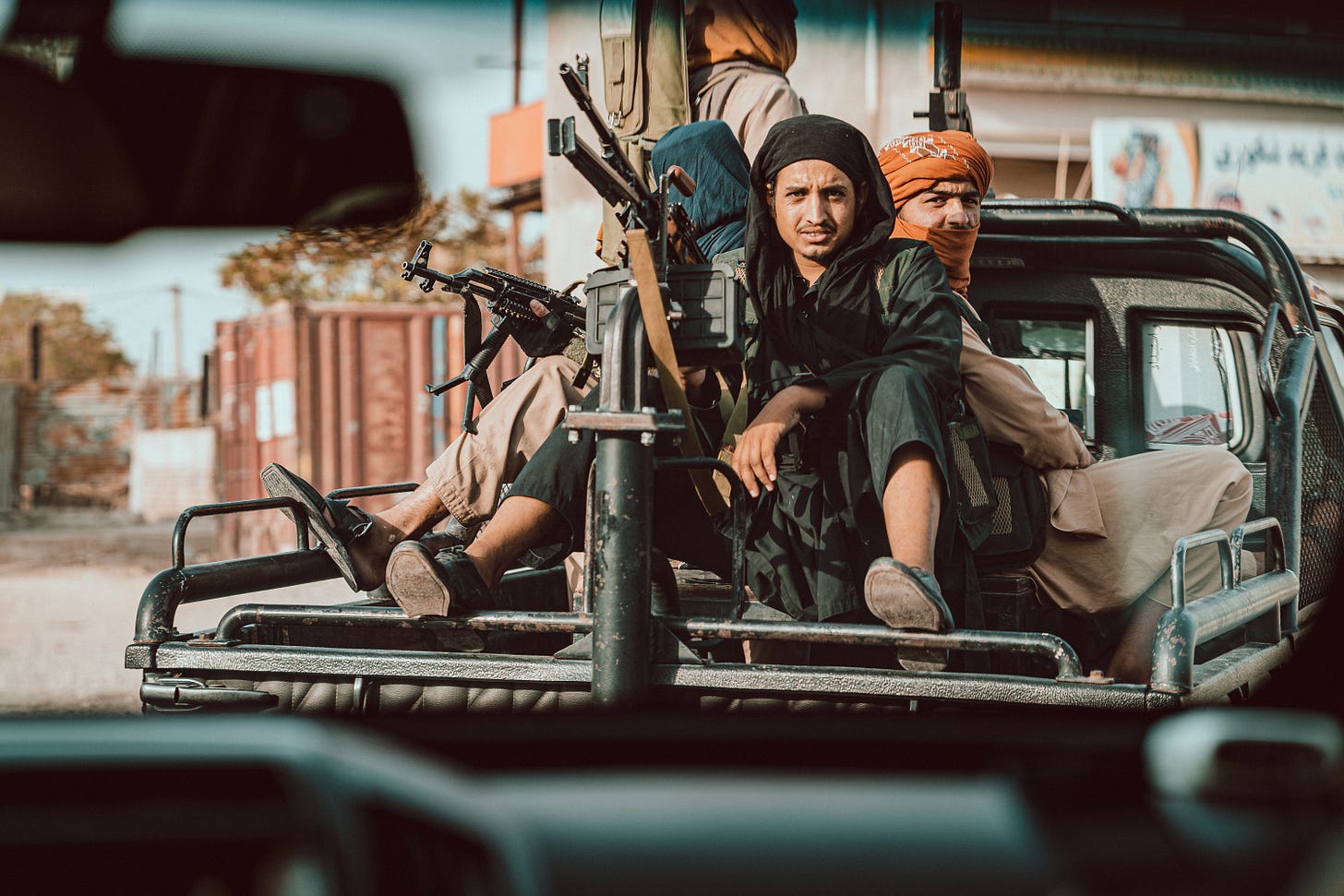
‘We kept getting the silent treatment,’ says Jake. ‘People were getting worried. And the day before it all happened, there was absolute silence. Nobody was answering our calls. We could hear gunfire and explosions and were just, like, fuck it. We had to get to the frontline. We managed to convince a taxi driver to take us and as we drove we saw more and more people fleeing. Eventually this young kid, who wanted to be our interpreter, told us the taxi driver was worried and wanted to turn back. We didn’t really have a choice.’
They tried to walk to the frontline but were met by Taliban fighters flying past on motorcycles. Everybody else had fled, Jake says. The police. The army. They returned to the hotel and pushed all the furniture against the doors, which were bullet and bomb proof. There was a bank in the same building, which Jake had assumed the Taliban, like ISIS, would rob upon taking control.
“You have to say no to indiscriminate killing of innocent people. That’s the bare minimum. It doesn’t matter what country they’re from.”
‘It was crazy,’ Jake says. ‘We were just sitting around the hotel thinking the Taliban were going to rush in and kill us. But they were actually quite civil. They knocked on the door and told us not to leave the hotel. They said not to get on the roof or they’d probably shoot us. They were having a party at the shrine but they didn’t destroy anything, just turned on their Islamic music and chanted and stuff. We did end up going on the roof for a look though. I remember thinking, fuck, there’s a lot of them. Probably three or four thousand.’
Despite the ensuing back and forth with both the US and Australian governments, it was the Taliban, in the end, who transported Jake and Hollie from the hotel to the Embassy of Uzbekistan. The brother of one of the Taliban commanders escorted them and apologised that his brother couldn’t be there personally. ‘I was like, that’s okay,’ says Jake. ‘I didn’t need to meet a senior Taliban official.’ Following what Jake describes as a lovely chat, they arrived at the Uzbekistan Embassy and were met by security guards dressed in Adidas tracksuits with sub-machine guns in their pants.

‘They were panicking as well,’ Jake says, ‘but in the most casual clothes possible. We all got in the bulletproof cars with these young Talib kids who were amazed by foreigners. They were so proud to tell us that they’d won. It was actually a really nice ordeal. We made it across the Uzbekistan border and I ended up speaking with the assistant to Taliban’s Minister of Foreign Affairs, who is actually a New Zealander. He spoke with a Kiwi twang, and I gave him a call to see if we could possibly come back. He said yeah, if our paperwork was in order, we could go back. And I spoke with friends back in Melbourne who said they were still in lockdown, so I decided I’d rather go back to Afghanistan and report and do my job. I ended up spending four-and-a-half months there, during which I met my wife.’
The book that came out of those months – Afghanistan: The End of the US Footprint and the Rise of Taliban Rule – follows the transition from US influence to Taliban governance through Hollie’s reporting and Jake’s photography. The blurb reads: “a chilling, bloody, yet beautiful visual expedition through one of the most magical yet wounded parcels of the planet. It is a place where poppies grow wild and men in the mountains cradle guns like children. It’s a place where kites fly high, and everyone has a war story, even though most never chose to go to war.”
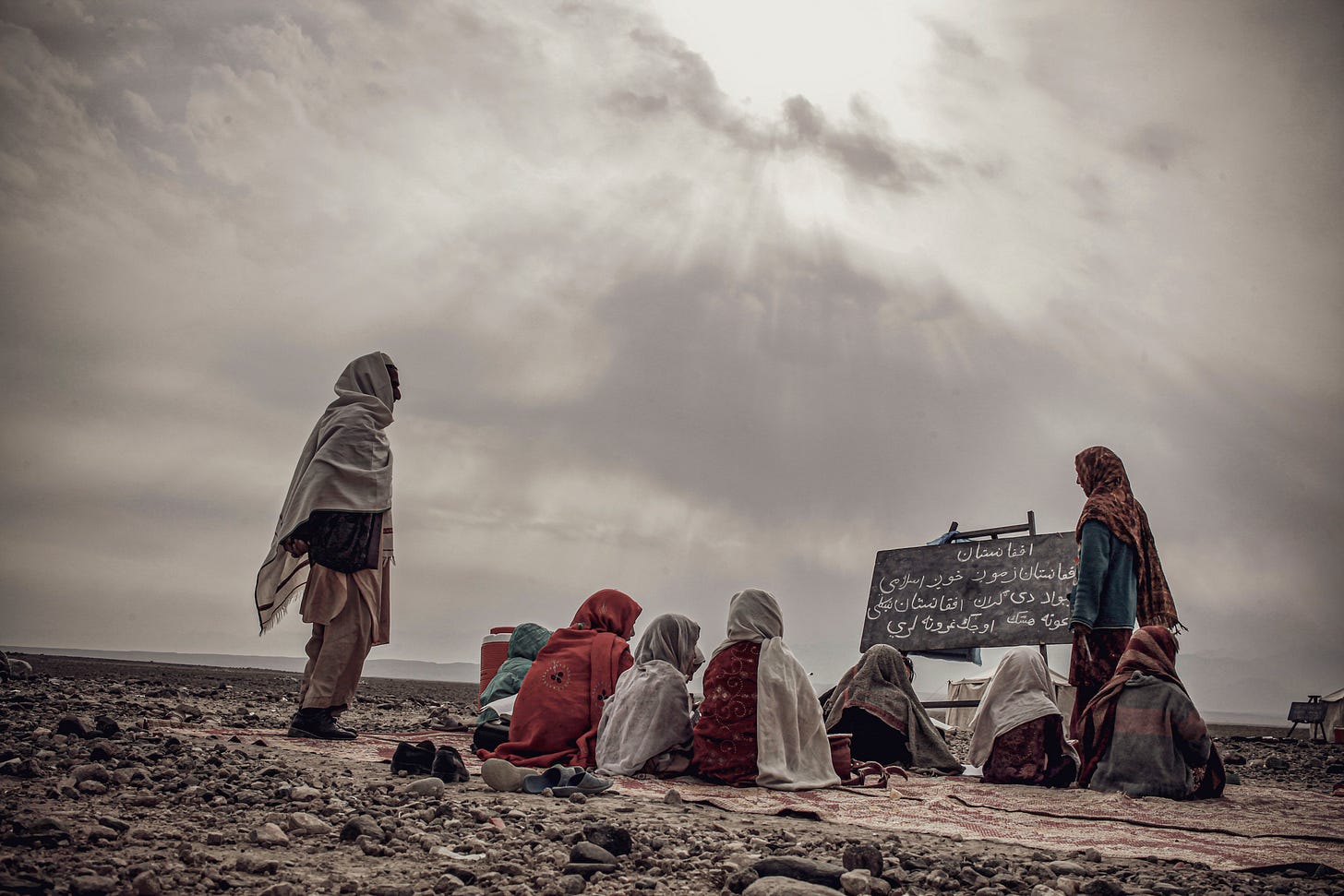
Now back in Melbourne, Jake has stepped away from war photography to concentrate on other projects, including his own writing. He plans to publish another book featuring his favourite hundred photos and the stories behind them, but with the ongoing atrocities in Gaza, he admits he finds himself doom scrolling on social media a lot of the time.
‘I feel it all,’ he says. ‘I know what it was like in Syria. What it was like being under siege with every single exit blocked. We were bombarded 200 times a day and now these young people are suffering extreme trauma. I feel compelled to stand with them and at least see what is happening through their eyes.’
Jake is grateful to be alive, to still be able to tell a story. He does what he can, he says, to help from Australia, whether it’s signing petitions, writing to MPs, photographing protests or sharing injustices online. He is deeply affected by what is happening in Gaza, especially as those telling the stories are not, he says, really journalists.
‘They were, like, social media influencers and now they’re dressed in bulletproof vests. You can see how tired they are. Look at Motaz. He shows you what humanity is really like but his tank is fucking empty. He might get a few hours of sleep, but he feels compelled to keep going and tell this story until the day he dies.’
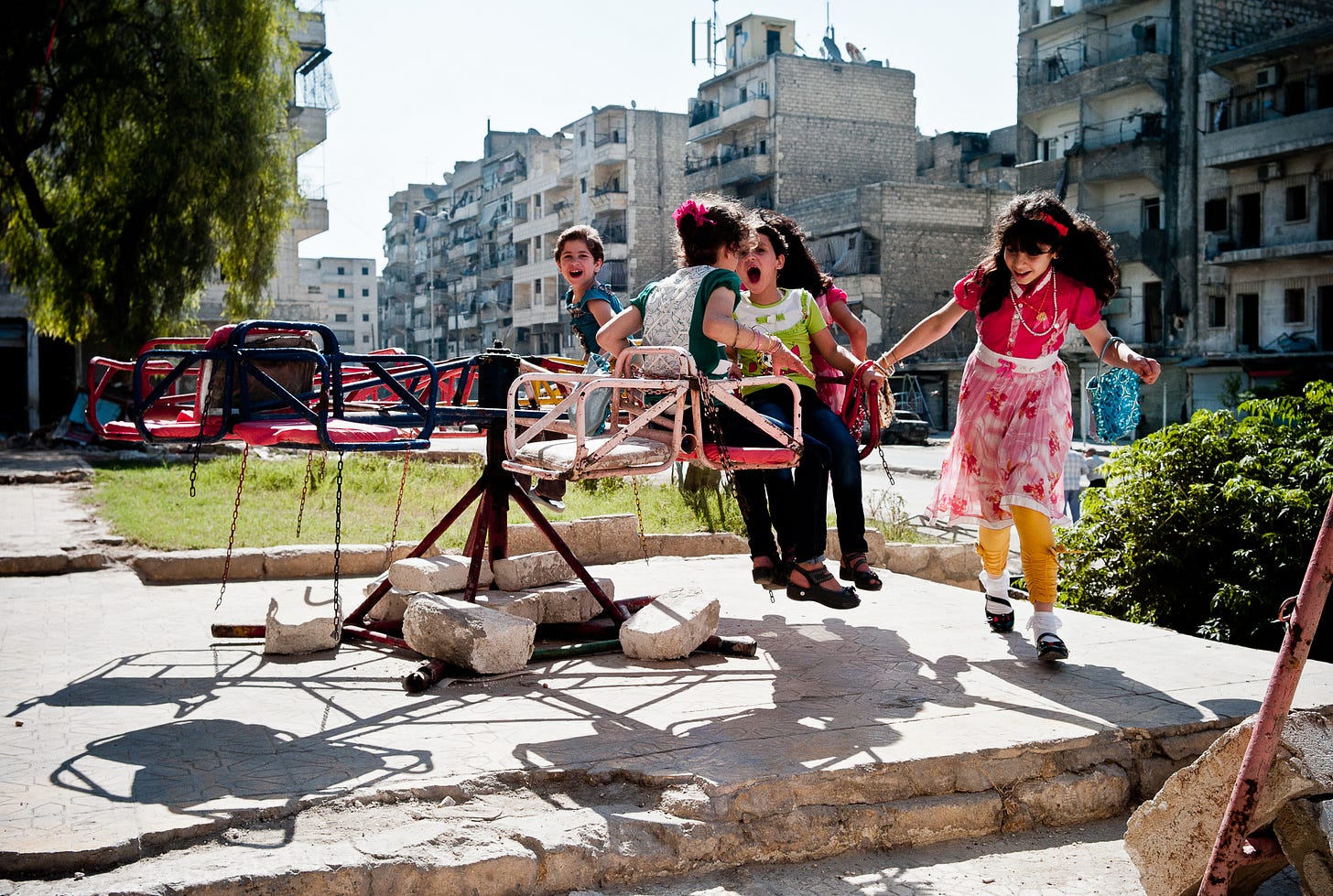
Jake is proud, too, that Melbourne – he feels – stands for Palestine, perhaps because it provides the sense of community he was searching for when he first left Australia all those years ago.
‘There’s a strong turnout every weekend,’ he says, ‘and they’re people like me, people who care. That’s what counts. You find your people, and I’m very proud of anyone that ever shares something about Palestine. Proud of anyone that shares any injustice in the world. When you have gratitude, you become aware that we have a comfortable life here. And somewhere else in the world, they’re not so comfortable. I’ll never stop fighting.’
Follow Jake on Instagram or subscribe to Have Camera, Will Travel – Jake’s Substack, which tells the stories behind the photographs.
A note on People & Places
You may have noticed that P&P offers a paid subscription option. This works as a kind of tip jar, so if you’d like to offer monetary support, please consider becoming a paid subscriber below. For now there is no difference in what you receive as a free or paid subscriber; either way, you’re appreciated. Thanks again for being here.

